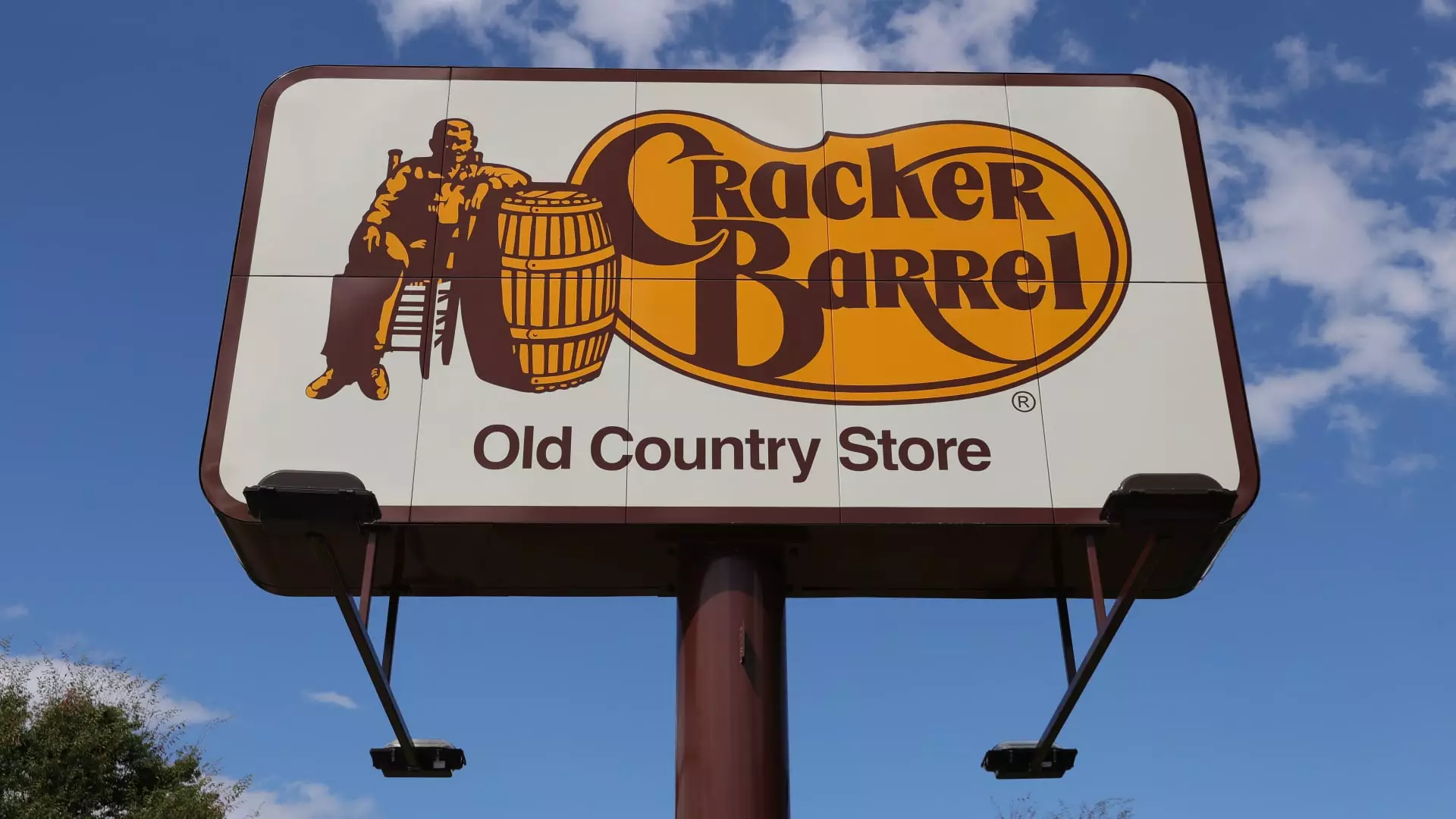In an era where corporations seem eager to chase fleeting trends and superficial aesthetics, Cracker Barrel’s decision to halt its remodeling plans and revert to its traditional roots is a refreshing display of authenticity. Many brands have failed to recognize that their strength lies in their heritage, not in a transient desire to appear “modern.” Cracker Barrel’s initial attempt to overhaul its image with a sleeker logo and contemporary redesign represented a misguided shift toward superficial appeal. Instead of catering to genuine customer desires for an authentic nostalgic experience, they pursued an empty modernization that alienated loyal patrons who cherish the vintage Americana that defines their brand.
The Power of Customer Loyalty and Cultural Identity
What makes Cracker Barrel’s reversal so significant isn’t just a corporate retreat—it’s a testament to the importance of cultural identity and customer loyalty. In a landscape where brands often prioritize image over substance, Cracker Barrel’s decision to listen and respond to its community demonstrates a refreshing recognition that authenticity resonates more deeply than aesthetics. The backlash against the logo change and remodels reveals a broader societal truth: consumers crave connection to tradition, nostalgia, and genuine storytelling, especially amid a rapidly changing world. By reaffirming its commitment to its original vibe, Cracker Barrel not only preserves its brand integrity but also affirms its identity as a sanctuary of comfort and familiarity.
Lessons for the Corporate World: Embracing Heritage Over Trendiness
Cracker Barrel’s experience exposes the often destructive allure of chasing trends at the expense of core values. Many corporations wield branding as a disposable tool, sacrificing their authenticity in pursuit of fleeting approval. Cracker Barrel’s willingness to stop and listen serves as a reminder that staying true to one’s roots is often the most powerful strategy in the long term. It attacks the superficial notion that modernization is inherently necessary to stay relevant; instead, it champions the idea that cultural resonance and customer trust are built on authenticity. This move should be a lesson—companies should honor their history and community bonds rather than pursue hollow image updates.
The Significance of Cultural Preservation in a Changing World
In reshaping its image, Cracker Barrel affirms what many centers of American tradition have known for decades: that preserving cultural authenticity nurtures deeper bonds with consumers. It isn’t about resisting change altogether; it’s about respecting what makes a brand meaningful. Modernization can be valuable, but only when it complements rather than erases a company’s core identity. Cracker Barrel’s decision to rollback its remodeling plans underscores the importance of honoring tradition in a modern world driven by rapid innovation and fleeting trends. Authenticity, after all, is timeless—something that no logo or sleek redesign can replicate or replace.

